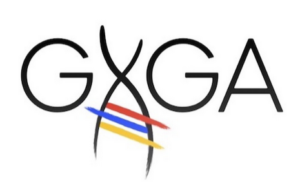NFDI. What is it all about?
Organised data management is important. And it can differ from research community to research community. But in the end everyone has the same question: “How do I take care of my data?”
The “Gemeinsame Wissenschaftskonferenz” (GWK) recently announced that they accepted so far nine consortia for timeless funding which will develop strategies for data handling. The NFDI can spend up to 90 Mio. Euro/year for all the consortia (there will be more joining in 2021).
These are the consortia so far:
- NFDI4Culture – Consortium for research data on tangible and intangible cultural assets (humanities)
- KonsortSWD – Consortium for the social, educational, behavioural and economic sciences (social sciences)
- GHGA – German Human Genome Phenome Archive (Medicine)
- NFDI4Health – National Research Data Infrastructure for Personal Health Data (Medicine)
- DataPLANT – Data in basic plant research (biology)
- NFDI4BioDiversität – Biodiversity, ecology and environmental data (biology)
- NFDI4Cat* – NFDI for sciences related to catalysis (chemistry)
- NFDI4Chem* – Chemistry Consortium within the NFDI (Chemistry)
- NFDI4Ing* – NFDI for Engineering (Engineering Sciences)
*The (co-)spokesperson is from RWTH.
How does this effect you or your work?
Well, first of at all it will take some time until the benefits will be presented and usable. With GHGA and NFDI4Health there are currently two consortia which are based in medicine and might contribute with guidelines, workflows and services to your work. And there is also at least NFDI4Microbiota which will apply in the second round for funding.
Below I will introduce these consortia quickly.
The focus of the German Human Genome-Phenome Archive is on cancer and rare disease communities.
Its mission is to handle omics data and to raise awareness “for the value of omics research and data sharing”.
In coordination with other consortia (e.g. NFDI4Health) it will provide expertise on the managment and record linkage of all sorts of medical data (also non-omics data types).
(source: https://ghga.dkfz.de/)
NFDI4Health is working on providing a concept for a federated research data infrastructure for personal health data.
There are four goals NFDI4Health is working for:
- The implementation of a federated health data infrastructure in Germany for searching and accessing health care data and health databases,
- To enhance data sharing and data linkage of personal health data in compliance with privacy regulations and ethics principles,
- To enable the development and deployment of new consent management mechanisms and augmented data access services, and
- To foster data sharing and cooperation between clinical research, epidemiological and public health communities.
(source: https://www.nfdi4health.de/)
NFDI4Microbiota will apply for funding in October 2020.
The vision of the NFDI4Microbiota consortium is that researchers in microbiology (including bacteriology, virology, protistology, mycology and parasitology) can translate omics data easily into a deep understanding of microbial species and their interactions on a molecular level.
The mission of the NFDI4Microbiota consortium is to be the central hub in Germany for supporting the microbiology community with access to data, analysis services, data/metadata standards and training.
The aims and objectives of NFDI4Microbiota are:
- Making omics data related to microbial species and diverse microbiomes FAIR (Findable, Accessible, Interoperable and Re-usable).
- Making the analysis of such data accessible, consistent and reproducible by offering automated data processing systems.
- Promoting data sharing and re-use.
(source: nfdi4microbiota.de)
Tom Clavel (PI of A02 and Q02) is also part of the consortium and contributing as spokesperson representing RWTH Aachen University as co-applicant.
What makes the NFDI-initiative different to a CRC or cluster of excellence? NFDI is not meant to focus on an university or research institute. It is meant to be for the research community.
To get a better understanding what NFDI is (and what not) have a look at the slides of the Rat für Informationsinfrastrukturen and its view at the first round of the application procedure.


